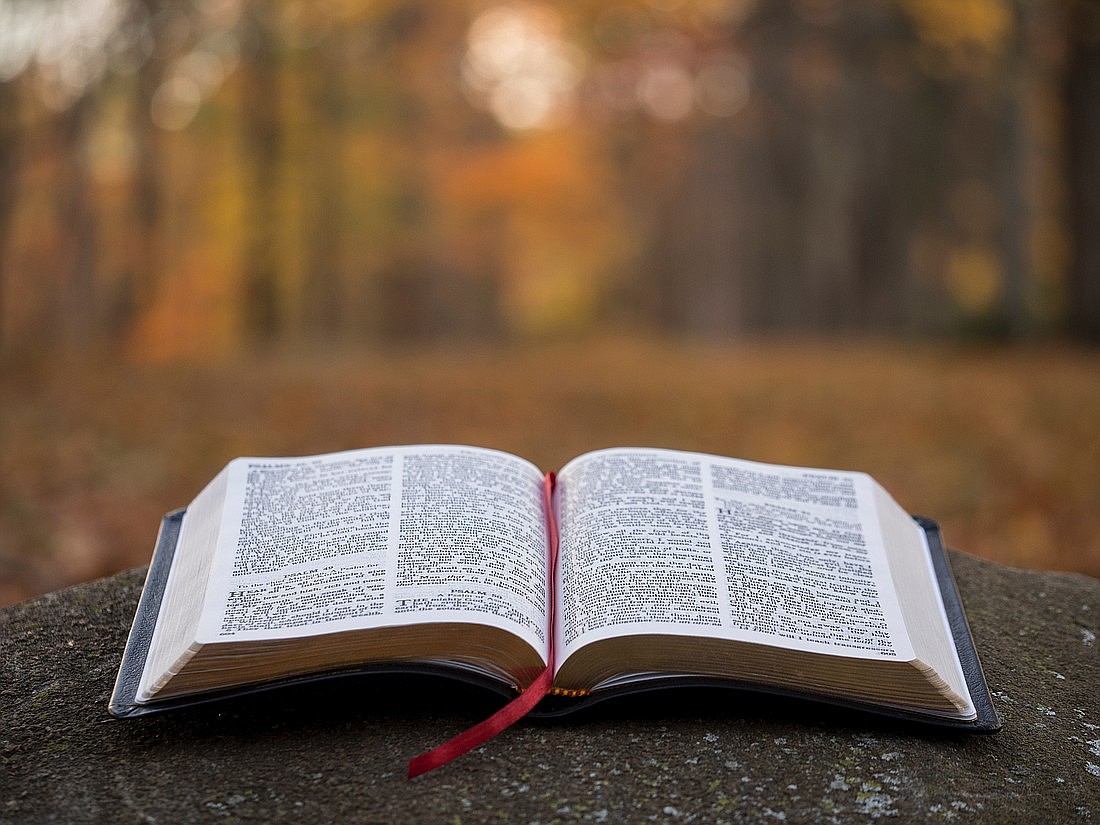May 3, 2023 at 9:51 a.m.
Preparing for Pentecost
“My Father’s house has many rooms; if that were not so, would I have told you that I am going there to prepare a place for you?” — John 14:2-3
The Church is very wise in the planning of the liturgical calendar. It seems like we are always in preparation for the next big thing in the cycle.
The liturgical year begins with the season of Advent, a time of preparation for the coming of Christ. However, even in Advent, this holy time can be viewed as a two-part season.
The Christmas season, although among the shortest liturgical seasons, takes us in about two weeks from the infant Christ to the Christ beginning His earthly ministry following His Baptism. We then go for a short period of time into the season of Ordinary Time, this post-Epiphany season, in which we are fully immersed in the ministry of Christ.
The great and holy season of Lent, the time of penance and preparation before the yearly commemoration of the Easter mysteries, can be seen as logically flowing from this time of Christ’s earthly ministry and can even be seen to be in two parts as well. The time of remote preparation for Easter can be seen from Ash Wednesday and the first three-and-a-half weeks of Lent (in which the Lord Jesus gives us all those rich parables basically on prayer, fasting, almsgiving and forgiveness) to around the end of the fourth week of Lent, when we begin to engage in our Gospel with the confrontations which led Our Lord to suffer His Passion, Death and Resurrection.
Following the time of the Sacred Triduum, we have the Easter season, which is, outside of Ordinary Time, the longest of the seasons. However, we can view even this Easter season, one in which we bathe in the light of His Risen Glory, Christ Our Lord, as a season of preparation. We can view all of the liturgical season of Easter as a remote and proximate preparation for the coming of the Holy Spirit in Pentecost.
Beginning this week, we begin the proximate preparations for the coming of the Holy Spirit in Pentecost. It is said that the Holy Spirit is the forgotten Person of the Most Blessed Trinity. Perhaps this is because, in many ways, He is the most intangible.
Make no mistake, though — the Holy Spirit is God. He is the Lord, the giver of life, as we profess each Sunday and solemnity in the Nicene Creed. But how do we experience the Holy Spirit? The sure and certain guide is the Catechism of the Catholic Church. In the Catechism (#688), we read the following:
The Church, a communion living in the faith of the apostles which she transmits, is the place where we know the Holy Spirit: in the Scriptures He inspired; in the Tradition, to which the Church Fathers are always timely witnesses; in the Church’s Magisterium, which he assists; in the sacramental liturgy, through its words and symbols, in which the Holy Spirit puts us into communion with Christ; in prayer, wherein he intercedes for us; in the charisms and ministries by which the Church is built up; in the signs of apostolic and missionary life; in the witness of saints through whom he manifests his holiness and continues the work of salvation.
First, we can find the Holy Spirit in the Deposit of Divine Revelation, meaning we can see the hand of the Holy Spirit guiding the Bible and the Sacred Tradition of the Church. Do we recognize that the Sacred Scripture’s true author is ultimately God? Yes, God works through the divinely inspired authors, so that the Bible is correctly conceived, accurately expressed and truthfully composed, but never forget that God is the author of the Bible.
In our preparation for Pentecost, we might read with open hearts and minds the book that we have been reading throughout the entire Easter season — the Acts of the Apostles. In many ways, this book is the sequel to the Gospel of Luke and it shares the same author. Read Acts and look for the stories where that Third Person of the Trinity is the protagonist.
Second, we can find the Holy Spirit in the Sacred Liturgy. When you attend Mass, look for the number of times that the Holy Spirit is invoked, especially during the Eucharistic Prayer.
Third, we find the Holy Spirit in the lives of the saints. Learn about the saints, blesseds, venerables, and the servants of God, and look to where the Holy Spirit was clearly guiding them throughout their lives. The Holy Spirit is coming soon in Pentecost, but He is actively present, powerfully showering us with His sevenfold gifts. Use this remaining time in the Easter season to prepare for the Holy Spirit!
- Tanzania’s Cardinal Pengo remembered as giant of faith, a ‘towering presence’ for Africa
- Bishops urge prudence, prayer, invoke Guadalupe’s protection as violence erupts in Mexico
- St. Francis’ relics open to public for first extended veneration in 800 years
- ‘We will grow in wisdom, holiness together,’ new bishop of Tucson, Ariz., tells faithful
- Pope renews ‘heartfelt appeal’ for ‘immediate ceasefire’ in Russia-Ukraine war
- Full text: Pope Leo XIV’s Angelus address given February 22, 2026
- God offers new possibilities, not prohibitions, with his invitation to love, pope says
- Find comfort, strength in Eucharist, pope tells attendees at LA Religious Education Congress
- Pope Leo XIV tells priests not to use AI to write homilies or seek ‘likes’ on TikTok
- Historical novel pitches Christian compassion against ideologies of hatred








Comments:
You must login to comment.